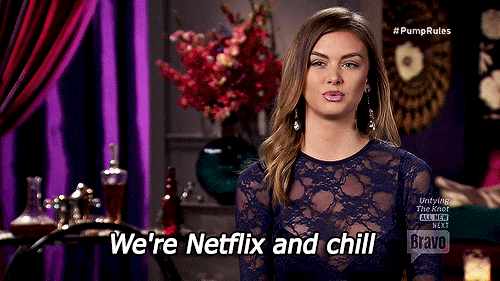When college students have free time, they open up their laptops and binge watch “Grey’s Anatomy.” When significant others come over, they turn on “Criminal Minds” as background noise. When they come home after six hours at the library, they watch five episodes of “Gossip Girl.”
College students often use Netflix as a time filler, a date activity or a way to relax at the end of the day, but it’s time for all of us to tone down our Netflix usage.
The average Netflix subscriber watches 1.8 hours of content each day and nearly two thirds of Netflix users regularly binge watch shows. Millennials are the most common demographic of Netflix users. Among our age group, 79 percent have access to a Netflix account.
Netflix consumes our free time, eating up any other interests or hobbies. Free time that could be spent cultivating a talent or learning something new rather than mindlessly staring at a screen. Free time that could be productive and invigorating instead of passive and undemanding.
For example, Google famously encourages their workers to spend 20 percent of their work time on whatever they want. With this free time, Google employees have dreamed up huge innovations for the company, including Gmail and Google News. Their free time allowed them to tinker with new ideas and experiment with the things that interested them.
If we continue to fill up our free time with Netflix, we won’t develop any interests. We will be solely interested in the content spewed out at us from our screens.
College students these days don’t have hobbies. They have class, homework, friends and Netflix. Without external hobbies and interests, college students are more homogenous.
What differentiates us from each other are our thoughts, opinions and interests. When we spend all of our spare time passively watching shows, we remove the opportunity to delve into those interests. As a result, there are scores of people on this campus passionate about “One Tree Hill,” but very few pianists or avid cross country skiers.
Very little of what we do has no underlying purpose — we do things to boost our résumés or to help out friends — but a hobby is entirely for enjoyment. Hobbies spark curiosity, creativity and exercise problem solving skills. They also have health benefits: lower risk for dementia and depression, reduced blood pressure, decreased stress and improved mood.
As a generation, our lack of hobbies is reflective of a bigger problem: our general disinterest in anything outside of a screen. We are apathetic towards anything that requires actual mental effort from us. If a situation feels strained or awkward, we fiddle with our phones so we don’t have to talk to each other.
Since articles are too tedious to read, we click on listicles — bullet pointed, easy to read summaries. When lecture gets boring, we online shop on our laptops instead of taking notes.
Entertaining ourselves with original thoughts feels like too much work, so we allow our phones and our laptops to spew out things to fill our minds.
I understand that college is mentally demanding, and at the end of the day, you want to check out for a few hours. But life continues on in the midst of our stress-filled class schedules and you have to find a way to experience it rather than staring mindlessly at a screen as a way to cope.
So, get a hobby. Learn to knit, pick up painting, play the ukulele, join a bowling league, start training for a half-marathon. And maybe watch only one episode of “Orange is the New Black” instead of five.
Teresa Turco (tturco@wisc.edu) is a sophomore majoring in psychology and economics.


